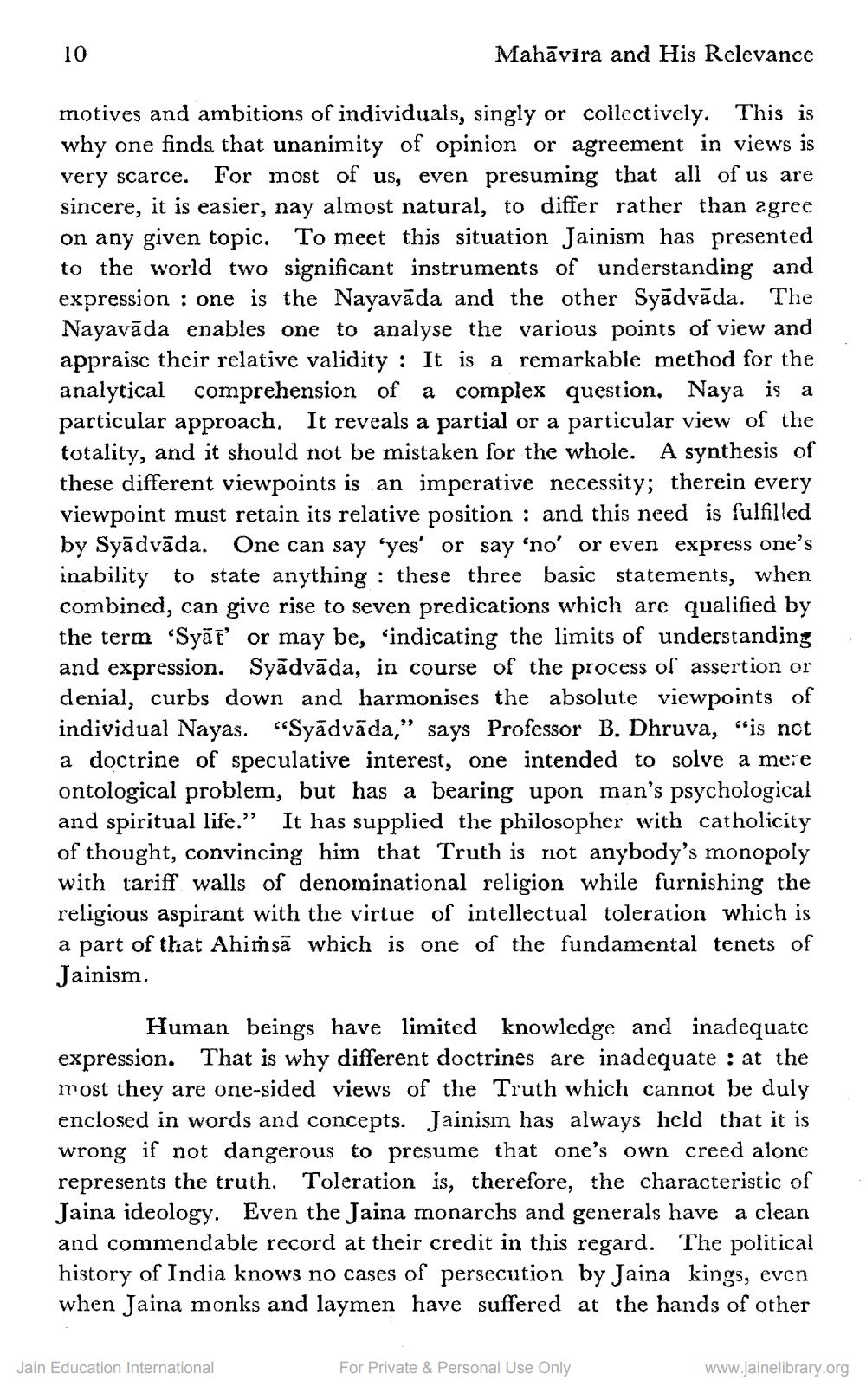________________
Mahāvira and His Relevance
motives and ambitions of individuals, singly or collectively. This is why one finds that unanimity of opinion or agreement in views is very scarce. For most of us, even presuming that all of us are sincere, it is easier, nay almost natural, to differ rather than agree on any given topic. To meet this situation Jainism has presented to the world two significant instruments of understanding and expression : one is the Nayavāda and the other Syadvāda. The Nayavāda enables one to analyse the various points of view and appraise their relative validity : It is a remarkable method for the analytical comprehension of a complex question. Naya is a particular approach. It reveals a partial or a particular view of the totality, and it should not be mistaken for the whole. A synthesis of these different viewpoints is an imperative necessity; therein every viewpoint must retain its relative position : and this need is fulfilled by Syādvāda. One can say 'yes' or say 'no' or even express one's inability to state anything : these three basic statements, when combined, can give rise to seven predications which are qualified by the term “Syāt' or may be, 'indicating the limits of understanding and expression. Syādvāda, in course of the process of assertion or denial, curbs down and harmonises the absolute viewpoints of individual Nayas. “Syādvāda," says Professor B. Dhruva, “is not a doctrine of speculative interest, one intended to solve a mere ontological problem, but has a bearing upon man's psychological and spiritual life.” It has supplied the philosopher with catholicity of thought, convincing him that Truth is not anybody's monopoly with tariff walls of denominational religion while furnishing the religious aspirant with the virtue of intellectual toleration which is a part of that Ahimsā which is one of the fundamental tenets of Jainism.
Human beings have limited knowledge and inadequate expression. That is why different doctrines are inadequate : at the most they are one-sided views of the Truth which cannot be duly enclosed in words and concepts. Jainism has always held that it is wrong if not dangerous to presume that one's own creed alone represents the truth. Toleration is, therefore, the characteristic of Jaina ideology. Even the Jaina monarchs and generals have a clean and commendable record at their credit in this regard. The political history of India knows no cases of persecution by Jaina kings, even when Jaina monks and laymen have suffered at the hands of other
Jain Education International
For Private & Personal Use Only
www.jainelibrary.org




